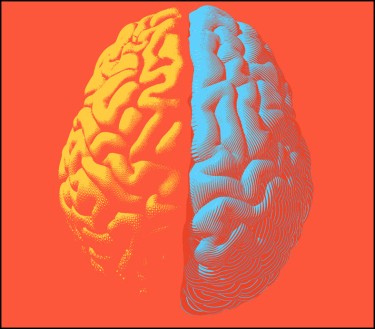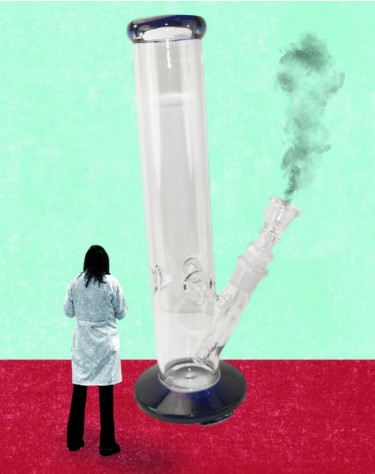
Get out of your car, want a marijuana breathalyzer test or a brain scan test?
Harvard researchers say they have developed a new device to test and detect marijuana use. This new method has to do with brain scans and THC, and could be the best way to finally solve the problem that has plagued employers and law enforcement officials for many years.
Testing cannabis sobriety for drivers, employees and other offenders has been a major conundrum for employers and law enforcement. Since the 2000s, scientists have offered many solutions, including the use of breathalyzers and other handheld devices, all of which have failed to provide accurate results on whether or not a person is THC-impaired.
This latest development from Harvard scientists comes at just the right time as several states implement cannabis reform measures. Officials are confused about how to successfully implement the laws without being partisan or making mistakes.
Finding a perfect solution to spot THC impairment
Law enforcement agencies rely on smells and cannabis possession to make cannabis-related arrests. They used modified breathalyzers, which could not accurately indicate the extent of impairment.
Originally, breathalyzers were devices used to test for alcohol intoxication. Officials used the test to determine if a driver was too drunk to drive, while some companies used it to test their employees. Another method was blood and urine tests to check a person’s system for illegal drugs like marijuana and narcotics. Companies use this test for pre-employment and on-the-job screening. But blood and urine tests also provide inaccurate results regarding THC impairment. While the tests can detect the compound in the blood and urine long after its psychoactive effects have worn off, they don’t track how severe the impairment is in the person.
Because of this, hundreds of arrests were made for joints taken weeks ago, making the whole process chaotic. Most organizations and companies have stopped testing for marijuana because the tests cannot determine whether or not the drugs have been used around the clock. Currently, few employers are firing their workers for 24/7 or off-hour cannabis use. The main compound that causes intoxication is THC, and existing tests provide compound results for all cannabinoids found in the system.
Harvard University research team claims that their developed device is the best solution to get rid of messy results. Their findings were published in the journal Neuropsychopharmacology.
The future of sobriety testing
Harvard has proposed a new approach to identifying impairments. Law enforcement and other agencies or businesses will soon no longer have to rely on traditional blood and urine drug testing. A team of scientists at Massachusetts General Hospital has successfully detected cannabis intoxication using brain imaging technology as a non-invasive method to look for activation patterns in the brain. These recognized patterns are often associated with cannabis use. This research could be the device that officials could use to enforce cannabis policies on the freeways and employers in their workplaces. It would help make areas safer and reduce the number of cannabis-related accidents on the streets and in the workplace. It would also do a lot to reduce wrongful arrests and penalties imposed on drivers and workers for past cannabis use.
Lead investigator at the Center for Addiction Medicine in Massachusetts, Jodi Gilman, described the latest development as a new direction in detecting cannabis impairments. The associate professor of psychiatry at Harvard Medical School said the team’s goal is to develop a method to detect cannabis impairments based on brain patterns in test subjects. On an individual level, brain activity says a lot about drug use. Gilman explained that the breathalyser approach is not an effective way to detect cannabis use from an objective standpoint.
The impairment of THC is a critical issue as it gives an idea of a person’s level of intoxication. Brain imaging devices can be made portable devices for use at traffic stops and workplaces.
The study
The team measured patterns of brain activity to accurately determine the amount of THC in a body at that point. The challenge revolved around the fact that THC levels in the body do not directly correspond to the observed functional impairment. The researchers were looking for a way to accurately determine if people were too drunk to perform basic tasks such as driving or working with heavy machinery.
The study was conducted on 169 volunteers. And they were put on oral THC or placebos to see how their brains responded to cannabis use. When the drugs were administered, a neutral activity signature was observed in the prefrontal cortex region of the brains of people who reported being intoxicated. They also showed an increase in oxygenated hemoglobin concentrations. The responses observed were significantly higher than those observed in subjects with little or no intoxication.
Gilman said the whole process isn’t as complex as it sounds. Determining the concentration of oxygenated hemoglobin in the prefrontal cortex is a straightforward process. The team pointed out that a lot of money could be saved if the test equipment were downsized to a lightweight, battery-powered device that could be handled by officers and trained employees at a company. They also mentioned that the technology could be incorporated into hats or headbands that could be worn at all times. That would shorten the construction time.
In the coming months, Massachusetts General Hospital and the research team led by Harvard University will gain more insight into this topic and conduct further experiments with a large number of volunteers. They seem pretty confident that they are going in the right direction.
Conclusion
Brain imaging tests are far better than modified breathalyzers, which only detect cannabis exposure but not the level of intoxication.
This proposed device will eliminate partial treatments at workplaces and on the highway. It would also save medical cannabis patients and other users of cannabis products with trace amounts of THC in their systems from undue penalties. Law enforcement agencies and employers will use this device to pinpoint drunk drivers and workers. As Gilman said, brain-based testing would be a practical and objective way to measure marijuana intoxication.
ARE BRAIN SCANS THE FUTURE OF CANNABIS DUIs READ MORE…

MARIJUANA BRAIN SCAN FOR DRIVING UNDER THE INFLUENCE?
OR..

CANNABIS breath salts test solved, a chemist has a new idea!

Post a comment: